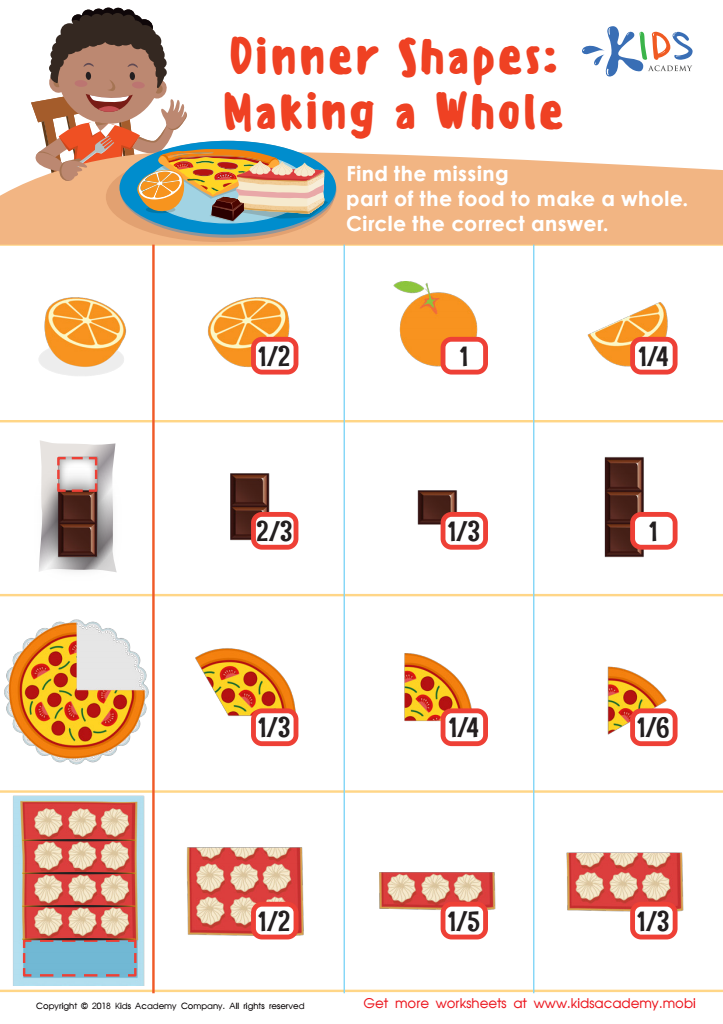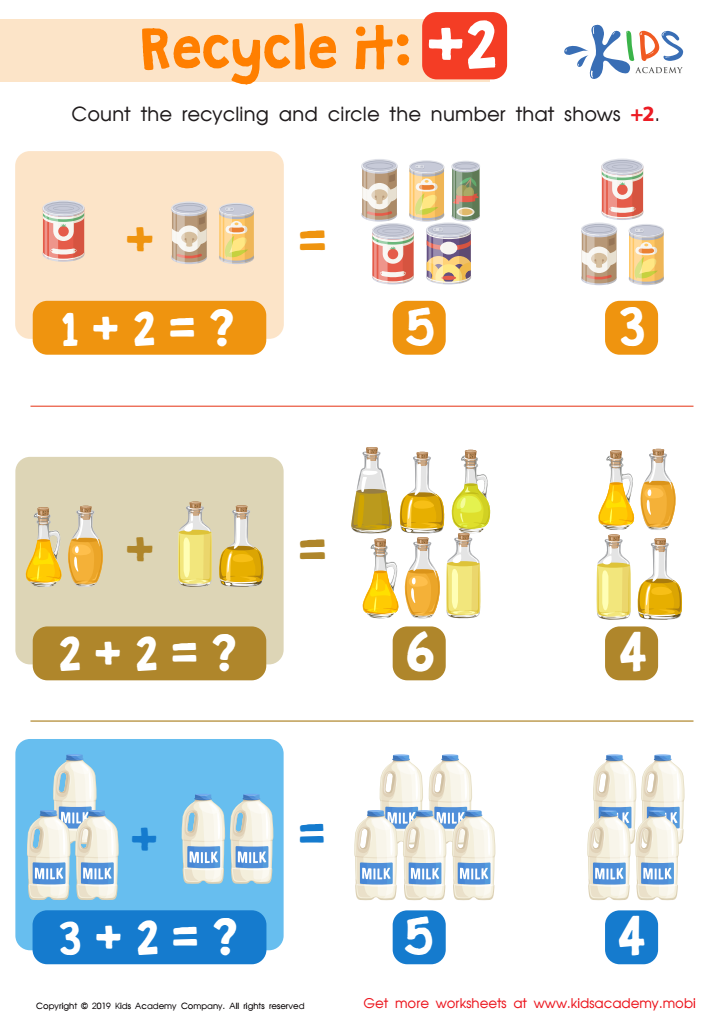Categorization skills Addition & Subtraction Worksheets for Ages 5-8
3 filtered results
-
From - To
Enhance your child's mathematical journey with our Categorization Skills Addition & Subtraction Worksheets designed for ages 5-8. These engaging worksheets help young learners classify objects and numbers, developing crucial categorization skills alongside fundamental math operations. By combining fun visuals and varied exercises, children will quickly build a strong foundation in addition and subtraction while enhancing critical thinking and problem-solving abilities. Each worksheet is thoughtfully designed to align with early learning standards, ensuring your child progresses confidently. Start today and watch your little one's skills flourish as they dive into the captivating world of math and logical thinking.


Dinner Shapes: Making a Whole Worksheet


Recycle It: +2 Worksheet
Categorization skills, addition, and subtraction are fundamental for children aged 5-8 because they lay the groundwork for more advanced mathematical concepts and critical thinking abilities. At this developmental stage, children's brains are highly receptive to learning, and mastering these skills helps build a robust cognitive foundation.
Categorization enhances cognitive development by teaching kids how to organize information, recognize patterns, and understand relationships between different objects or concepts. This ability is crucial for effective problem-solving and logical reasoning, skills they will use throughout their life in various contexts, both academic and real-world.
Addition and subtraction, on the other hand, are essential arithmetic foundations. These basic operations are not just about numbers; they teach children how to perform tasks step-by-step, understand quantity, and recognize the principles of change and balance. By learning to add and subtract, children develop numerical literacy, which is crucial for everyday tasks like telling time, handling money, and measuring objects.
In summation, parents and teachers should focus on categorization skills, addition, and subtraction for young children because these competencies foster essential thinking skills and set the stage for future academic success. Attention to these areas ensures children are well-prepared for more complex math and logical reasoning tasks as they progress through their education.

 Assign to My Students
Assign to My Students















